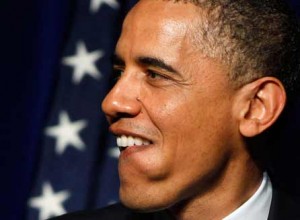by George Landrith • Human Events
 A good football coach knows that on third down and inches, a quarterback sneak might be the best play. Conversely, on third down and 25, his team will likely throw a long pass. The right play for one situation isn’t necessarily right in every situation.
A good football coach knows that on third down and inches, a quarterback sneak might be the best play. Conversely, on third down and 25, his team will likely throw a long pass. The right play for one situation isn’t necessarily right in every situation.
Likewise, an effective U.S. President knows when to intervene and project strength and when to keep a low profile. Obama’s problem is that when he should show strength and resolve, he is passive and weak. And when he should show restraint and patience, he needlessly inserts himself and seeks to impose his will. Simply stated, given the circumstances, he calls the wrong play. Obama’s miscues are endangering the future of South Sudan.
South Sudan is the world’s youngest nation. In 2011, after decades of conflict and civil war, South Sudan was carved out of Sudan along cultural and geographical lines. But the new nation has had growing pains and conflict as it establishes itself as a new democracy. These difficulties have been made worse by Obama’s interference.
As Americans, we can relate to the troubles and growing pains that naturally follow when a new nation is formed. After winning our independence from Great Britain, we had the unsuccessful Articles of Confederation before adopting the Constitution. We had the Whiskey Insurrection and Shays’ Rebellion — both armed conflicts. And, of course, we had the Civil War. Fortunately, no foreign power intervened and imposed their solutions on us. We were allowed to work our way through these conflicts and build a strong, stable and vibrant representative democracy.
South Sudan should be allowed to do the same thing — find its own home-grown, organic solutions which will lead to a stable and prosperous society. Unfortunately, Obama, who is often criticized for doing too little and leading from behind, in-artfully inserted himself into this conflict and by so doing reduces the chances of long term peace and stability. By trying to impose an external solution that overturns the results of the nation’s first elections and that financially rewards those fomenting violence by giving them disproportionate national oil resources, Obama is incentivizing the rebels continuing hostilities.
Those involved in negotiating the agreements from the beginning worked tirelessly to keep outside political interest from overwhelming the process. The goal was to allow local factions to build trust and work through complicated political issues. This takes time. It took our nation more than 80 years. Imagine what might have happened if foreign nations had sought to impose their “wisdom” upon us.
A decent football coach knows when to run for a short gain and when to throw a long pass. But Obama can’t tell the difference. His foreign policy is uninformed and naïve — he does not recognize when action is needed or when patience and forbearance is best. He shows weakness to Russia, Iran and ISIS, but he is interfering in South Sudan.
On a practical level, it makes no sense to reward the rebels’ continued violence by effectively overturning the results of democratic elections and disenfranchising millions of citizens. It makes even less sense to give control of a majority of the nation’s oil resources to the very groups who are fomenting the discord and violence. This teaches the wrong lessons — if you want more political power and more oil wealth — reject peace and engage in violence, and the US President will swoop in to impose a new arrangement that rewards you with disproportionate political power and incommensurate wealth.
Why would any sensible leader create such perverse incentives? This is worse than giving a screaming child exactly what he wants.
The truth is the factions in South Sudan can resolve their current disputes on their own. But when the international community interferes, as President Obama has done, prospects for peace and long-term stability are endangered. While not a fan of President Obama’s “lead from behind” approach with Russia, ISIS, and the Middle East, inanely interfering in South Sudan where there is a commitment to peace and democracy has not advanced peace or America’s interests.
As any good coach will tell you, there is a time to go long and there’s a time to fight for a yard. But you’ve got to know the difference. So far, Obama hasn’t shown he can tell the difference.